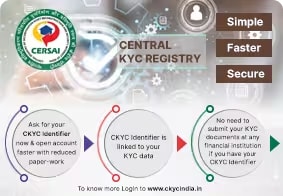Enjoy Zero Charges on All Commonly Used Savings Account Services
- About Us
- MD & CEO letter about the bank
- MD & CEO
- Our History
- Letter to Shareholders on the 1st Annual Report after Merger
- Letter to Shareholders on the 2nd Annual Report after Merger
- Letter to Shareholders on the 3rd Annual Report after Merger
- Letter to Shareholders on the 4th Annual Report after Merger
- Board of Directors
- Awards & Accolades
- News Room
- Investors
- Careers
- ESG
-
Customer care hotlineCall 1800 10 888
-
As per amendment in the Income Tax Rules, PAN or Aadhaar are to be mandatorily quoted for cash deposit or withdrawal aggregating to Rupees twenty lakhs or more in a FY. Please update your PAN or Aadhaar. Kindly reach out to the Bank’s contact center on 1800 10 888 or visit the nearest IDFC FIRST Bank branch for further queries.
-
-
FinFIRST Blogs
NRI banking for non-resident Indians, has become increasingly popular over the years. As more and more Indians are settling abroad, the need for banking services that cater to their unique requirements has grown manifold.
NRI banking offers a range of financial services, such as remittance, foreign currency accounts, investments, and loans. However, with so many options and regulations to navigate, it's common for NRIs to have questions about their banking needs. This article focuses on some of the most frequently asked questions about NRI banking to help you make informed decisions and manage your finances effectively.
NRI banking: 6 Frequently asked questions
1. Who can open an NRI bank account?
· An NRI bank account can be opened by an Indian citizen living outside of India for an uncertain period (like being employed, pursuing education or carrying out any business/vocation)
· You need to be an Indian national or of Indian Origin (Person of Indian Original/Overseas Citizen of India)
· Seafarers working on International vessels
· Oil rig employees working on International Offshore Projects
If you wish to open an NRI savings account but need help choosing where to start, IDFC FIRST Banking can be your go-to solution. Thanks to its diverse product range and customer-centric services.
2. What are the documents required to open an NRI bank account?
A few standard documents include the following -
· ID proof - Photocopy of valid passport & Permanent Account Number (PAN)/Form 60
· Non-Resident Indian status proof (any one of the following) - Visa/work permit/overseas resident card/PIO Card/Continuous Discharge Certificate with valid contract letter for seafarers/Resident Permit
· Overseas address proof (any one of the following) - Passport/driving license, National ID, Government issued IDs/latest utility bill – mobile, gas, electricity, telephone/latest savings bank statement from a transactional account – not older than 2 months/resident permit, etc. (There must be a match between the address listed on the document and the address on the application)
Recent color photograph and signature
READ MORE
3. What are the benefits of NRI banking?
Here are some key features of NRI banking -
· Assures continuity of income - Allows NRIs to receive a steady stream of income from their accounts in India and overseas.
· Enables investment in India - Provides access to a wide range of investment options, enabling customers to participate in the Indian economy and potentially benefit from its growth.
· No obligation on exchange rate fluctuations - Helps NRI customers avoid the risks associated with currency fluctuations.
· Attractive returns - Makes for an appealing option for those seeking to maximize their earnings.
· Enables inward remittances - Allows NRI customers to transfer funds to India and support their families easily.
· Loan facility - This is particularly helpful for those seeking financing in India. By offering various loan options, NRI banking enables customers to access funding for several purposes.
4. How can an NRI transfer funds to India?
The most convenient for a Non-Resident Indian to do this is by -
· Banks
· Money transfer companies (Western Union, UAE Exchange, TransferWise, etc.)
· Online payment systems (PayPal, Wolla, Skrill, Payoneer, Payza, etc.)
Through the IDFC FIRST Bank NRI Savings Account, you can make your overseas transaction a lot easier. The bank enables you to credit your beneficiary's account within 1-3 working days if you're an NRI.
5. What are the tax implications for NRI banking in India?
As an NRI with banking interests in India, it's important to understand the tax implications associated with NRI banking since you may have to pay taxes on your income earned in the country. These tax implications could include -
· Capital gains levied on investments made in India (by Section 195 of the Income Tax Act)
· Rent from property owned in India (by Section 195 of the Income Tax Act)
· Interest income earned from your NRI bank account or deposits (by Section 195 of the Income Tax Act) subject to exemptions, if applicable
· Consulting fees or salary earned in India (by Section 9(1)(ii) and Section 195 of the Income Tax Act)
6. What are the restrictions on NRI banking in India?
l As per the FEMA rules for NRIs, investment in the government's small savings or Public Provident Fund (PPF) schemes is prohibited for NRIs
l As an NRI, you cannot deposit the funds earned/received in India into an NRE account. Mentioned below are examples for the same
· Cash in Indian rupees
· Gifts received in India
l Any income generated in India for which the taxes are not deducted at the source.
To sum it up
We've covered some of the more basic queries regarding NRI banking to help you make an informed decision while conducting any transactions in India.
If you are looking for a perfect banking partner to begin NRI banking, IDFC FIRST Bank's NRI Savings Account offers an efficient and hassle-free banking experience. You can access a range of banking and investment products with attractive features and benefits.
Disclaimer
The contents of this article/infographic/picture/video are meant solely for information purposes. The contents are generic in nature and for informational purposes only. It is not a substitute for specific advice in your own circumstances. The information is subject to updation, completion, revision, verification and amendment and the same may change materially. The information is not intended for distribution or use by any person in any jurisdiction where such distribution or use would be contrary to law or regulation or would subject IDFC FIRST Bank or its affiliates to any licensing or registration requirements. IDFC FIRST Bank shall not be responsible for any direct/indirect loss or liability incurred by the reader for taking any financial decisions based on the contents and information mentioned. Please consult your financial advisor before making any financial decision.
The features, benefits and offers mentioned in the article are applicable as on the day of publication of this blog and is subject to change without notice. The contents herein are also subject to other product specific terms and conditions and any third party terms and conditions, as applicable. Please refer our website www.idfcfirstbank.com for latest updates.


 What's special about us
What's special about us




















